- Home
- John Ellsworth
Sakharov the Bear (Michael Gresham Legal Thrillers Book 5) Page 7
Sakharov the Bear (Michael Gresham Legal Thrillers Book 5) Read online
Page 7
"What were you thinking, Michael?"
"I have no idea. Maybe that someone in this city would know English."
"No, Russia isn't like other places where you have English speakers lurking. You're really out in the sticks here when it comes to languages."
"So I learned yesterday. The hard way. But look, Russell Xiang is supposedly at Moscow Jail and I need to confirm that. Then I need to figure out how to visit him. Are you up for that now or do you want to go to your room and grab a few winks?"
"I'm bright-eyed and bushy-tailed,” he says, always game for whatever I've got going on. I'm grateful.
"That's terrific."
"Just let me hit the head and I'm good to go."
"Take your time."
Five minutes later I hear the bathroom plumbing in my bathroom moaning and registering that it has been flushed. Now it serves up sink water to its occupant. Marcel whistles as he goes about his business, then he is finished.
"All right, you ready?"
We take a cab back to Moscow jail.
At the counter, the same woman looks at me, trying to remember, maybe, where she's seen me before. But this time, when it's our turn, Marcel takes over and speaks to her in Russian. She says something back. Then they go on like that for three or four minutes. Finally he turns to me.
"Don't step out of line. She's saying he's not here. I've demanded to speak to her supervisor."
"I have this," I say, and produce my cell phone with a picture I took of the court's slim file on Xiang. "Does any of this say he's here?"
Marcel spreads the pictures into a larger size on the screen and studies them.
"Look here," he says to himself after flipping through four screens or five. "Here's proof our boy is right here."
The woman returns to her window with an older gentleman in tow. He is wearing a terribly ill-fitting suit of Russian clothes and has coffee stains on his necktie. He looks back and forth between us, then Marcel says something to him in Russian. Moments later, Marcel is holding up to him—and her—the papers I've stored on my phone that came directly from the City Court. They take the phone from him, turn it this way and that, then confer among themselves. Then they speak to Marcel. He nods and smiles and turns back to me.
"Your man is being held under the name the Russian court gave him. It's a bastardization of his actual name, making it into something Russian."
"So—where does that leave us?"
"They have confirmed Russell is here. But now they want to know by what authority you are here to visit him. Are you his lawyer? Do you have papers to prove you're a Russian lawyer?"
I sense the entire prospect of seeing Russell slipping away from me again. I almost thought we had it there, but it looks otherwise now.
"Damn," I say. Behind us in line I can hear muttering and what evidently are complaints from others behind us.
"They are demanding to go ahead of us in line," Marcel tells me. "What should I do?"
"Tell her I'm an American lawyer and I'm going to the American Embassy and filing a complaint against her if she won't let me see Russell immediately."
Marcel looks me up and down. "You sure you want to do that?"
"Yes, I'm sure."
He turns back to the clerk and speaks to her in a strong voice. She begins nodding as he speaks, and then types something on her keyboard. She then speaks to Marcel and he turns to me, smiling.
"She says there's no need for that. We can meet with him at noon."
"Beautiful, Marcel. Tell her thank you. Tell her we'll be back at twelve sharp."
Marcel nods and relays my message to her. She doesn't smile or acknowledge my words, instead waving up to her window the next man behind us. He steps around us and begins jabbering at her in Russian. I assume it's Russian—what else would it be?
So Marcel and I find a cafe and order breakfast. It is half-past eleven by now; we're both starved. We shovel down what you might call a Continental breakfast with dense, bitter coffee and chase it all with yet another cup of the stuff with as much cream as we can get into our cups without overflowing.
"Here's to you, Michael. You did good at the jail."
I raise my cup to return to his salute. "No, it was all you. Thanks for coming."
After we explain to Russell Xiang who we are, the next words out of his mouth are about Anna Petrov. Where is she? Are we there to help her, too? Is she okay?
"I really don't have those answers," I tell him. "Nobody has said anything to me about Anna Petrov. Is she even in this jail?"
It is a useless question and I know it. He doesn't know anymore about this place than Marcel and I. He shakes his head wearily and wraps his arms around his torso. He is wearing a thin cotton shirt with vertical stripes and lettering on the back. There are matching pants, equally thin, though it is freezing in the jail. Inmate comfort is obviously far down on the list of the Moscow penal bureaucrats.
"I haven't seen her. I was knocked unconscious at the green house and woke up in jail."
"The green house?" I ask.
We are sitting in a small, private, conference room. We have no doubt we're being recorded word-for-word, so I purposefully keep it very general.
Russell swipes his hand across the steel table separating us as if he is wiping it clean. "The green house is a company safe house."
"Company as in—"
"Of course."
"So you were working for them?"
His eyes narrow at my question. "Don't tell me, Mr. Gresham. They're disavowing me?"
"They are. They're having nothing to do with you."
"Then who sent you here?"
"Well, your wife and your father. Your father called me and got me onboard."
"Poor dad and poor Antonia. I'm sure the company is telling them nothing."
"That's the gist of it. Now, keeping in mind that this room is bugged and probably videotaped, what I'd like you to do is slide over here beside me on this bench and whisper in my ear how it happened that you were arrested."
He complies, coming around the table. I move down and Marcel gives up his seat and crosses to where Russell has been sitting. Marcel lowers himself onto the steel bench and begins speaking nonsense—nursery rhymes, lyrics to songs, any and everything to provide white noise over Russell's whispers. As Marcel makes his noise cover for us, Russell goes over the days leading up to his arrest. He explains to me about Henrik, about the bill of lading from the arms shipment, about the murder of the Moscow Station chief, and about Anna's work with him. He also gives me information on how I can prove his connection to the CIA but warns me never to use that information without consulting him first and getting his okay. I agree, and he tells me the entire thing, including where all the bodies are buried. Literally, in some cases. He tells me that they took him to court that one time and that an English-speaking magistrate told him what he was charged with and what the possible penalties were.
"I was charged with stealing state secrets," he whispers.
"Possible penalties?"
"Death by firing squad."
I sit there and let that information run around in my head. It is terrible news and I feel like I won't ever have enough tools to successfully defend Russell as I can't speak the language, aren't a member of the court, and have no idea of Russian rules of evidence and procedure. He might as well have a high school senior helping him as me, I say.
"Then get someone else, Mr. Gresham," he says calmly. "My father will hire a Russian lawyer for co-counsel."
"I'm sure he will and that's exactly what I'm planning to recommend. Just as soon as I get back to the hotel I'm going to start making my calls and then make my rounds. Will you be okay here for a few more days until I can get your back into court and try to get conditions of release set?"
"If you call eating beet soup with bread twice-a-day getting along okay, then I guess I will be. At first I thought I was passing blood in my stool. Now I get it: beets."
"Never thought of that," says
Marcel, now that we've resumed talking in normal volumes.
"It's anything but pretty," Russell says, forcing a smile for us. We smile along with him although we all three know it's the same as whistling past the cemetery. These are scary times and we need to lawyer-up and do what needs to be done.
Chapter 14
Michael Gresham
"You're going to need a new identity," Marcel says that night in my hotel room. We're eating roast beef, potatoes, and scallions and chasing it all down with that same rank Russian coffee as this morning. But we're not complaining. We see a path ahead.
"I'm going to need a new identity because why?"
"Because you don't want repercussions back home. These are the kind of people who would come after your family."
"FSB would?"
He scoffs. "Just a few years ago they were the KGB under Putin, who now runs the FSB too. Very scary people, Boss."
"So who am I going to be?"
"Mikhail Sakharov."
"Sakharov."
"Sakharov the Bear. You're going to be Russian. Mikhail Sakharov actually once existed and we're going to borrow his ID since he would be about the same age as you."
"Well they'll figure that out immediately, if I'm someone who once existed, won't they?"
"Not necessarily. Because nobody will be looking. This afternoon I rented a flat a mile off Red Square where you'll be anonymous."
"Hot water?"
"Yes, hot water. And furnished like some noir film out of the Forties."
"Perfect. I can practice my Sam Spade. With apologies to Bogart."
"Listen to me, Michael. You're going to be there alone. I can't be with you."
"Why not?"
"Because the FSB knows who I am and has a complete dossier on me. From many years ago."
"Oh," I say, the light coming on in my head. Of course, Marcel has been in Moscow before and God only knows what he did here.
"I'm a very wanted man. So you don't want to be seen with me or connected to me in any way. For the record, I didn't fly in here under my real name."
"Got it. So I just take a cab to this flat tomorrow and move my stuff in?"
"Pretty much. I'm making up some cards in Russian that explain you can't speak, that you're a stroke victim."
The next day, I pack up my bags, load everything into a taxi van, and give the driver my new home address. It's about a ten-minute drive from Red Square, including two accident backups and heavy snow. The neighborhood is old and gloomy, with a few churches on the corners of the streets approaching my new digs. No one seems to be out and about—too cold. As we turn onto Inkanov Street—my new address—the light is dim, the sky is heavily overcast and gray, and I suddenly realize I could be in any of a million neighborhoods across the upper Midwest of the United States. Same architecture, same buildings and houses, same everything. Except the signage is all unreadable and the cabbie speaks a language I don't comprehend even for a second. He drops me at my address and comes around and opens my door. Moments later I'm left standing on the sidewalk, my worldly goods dangling from my arms, wondering how I can traverse the ice from the recently-shoveled walk leading up to my new digs. Ultimately I just put my head down and start up the sidewalk to the porch, slipping a bit on the porch steps, and let myself inside without knocking, for I'm standing in a common area.
Up the stairs I go; the second floor is all mine. As promised, the key is above the lintel and I let myself inside. Home consists of the barest of furnishings, lace curtains laden with dust—I find out as I try to spread them open for outside light—and wallpaper that could have been rural Wisconsin farmhouse, c. 1955. The place smells ancient and musty and I assume there's mold everywhere inside the walls and under the sinks. I'm very mold-sensitive as I've had it attack my house in Evanston twice in fifteen years and it's very expensive to remove. In the single bedroom, I set my bags on the floor and flop back on the double bed. Springs in the mattress and an unstable frame that could give way at any moment. No girls up here, I find myself thinking. I'm home.
I have picked up a burner cell phone and retrieve it from my jeans pocket. There is Wi-Fi in the house, as promised, and my laptop connects right up without needing a password. Now I'm ready to get down to why I'm in Russia at all.
Online I find four law firms in Moscow that claim a proficiency in English. The first two I dial are closed for the day, evidently, as I get voice mail. Bypassing those, I try the third.
The male voice speaks Russian. I of course don't understand.
"I'm calling for legal help. Do you speak English?"
I'm thrilled when the voice says, "I do. How can I help you?"
"My name is Sakharov. I'm an American lawyer with an American client in the Moscow City Jail. I need to associate co-counsel and defend my man. Can you help?"
"I think I can, Mr. Sakharov."
"What’s your name?"
"My name is Ivanovich but I prefer 'Van.'"
"Fair enough. When can I get in to see you?"
"Is this evening soon enough? I live above my office and late hours are fine for me."
"What time is it now?"
"Just after three."
"It looks like nine at night.”
"We are pretty dark in the winter. What about six p.m.?"
"I'll be there. Your address is current on your website?"
"It is. Come to the door on the side of the building and ring the bell. It shouldn't be frozen, but I'll make sure."
"Will do. And thank you, Van."
"I will see you at six, Mr. Sakharov."
"Mikhail."
"Mikhail, then."
Almost three hours later I'm ringing his bell. The door opens and a swarthy Russian man invites me inside an office that contains several filing cabinets; I must turn sideways to pass them. Next comes a huge desk and two visitors' chairs. I take a seat in one of the chairs and look around. First off, directly behind me is a large photograph of the World Trade Center Towers before 9/11. They are totally out of place here in Moscow, Russia, I'm thinking, but then I remember my man here does speak good English and so there's probably some connection. I tuck that away for later.
He takes the squeaky executive chair across from me and lights a cigarette. He holds out the open end of the pack and I shake my head. "Surgeon General and all that," he says with a smile. He has definitely spent time in the U.S. and encountered the warnings on our cigarettes.
"Yes," I agree. "Surgeon General."
"So, tell me a bit about yourself, Mikhail. Your name is Russian; are you?"
"Look, I have no choice but to be open and direct with you. Is that safe to do?"
He looks around the room, choosing his words. "If you mean is this confidential, then yes. If you mean would I turn in an enemy of the state, the answer is no. But would I break down under torture and give you up? Then the answer is also no, your secrets are not safe with me because I'm a huge coward when it comes to pain. And believe me, Mikhail, when it comes to inflicting pain there is no agency better equipped for that than the Russian military police, the FSB. They rule the country with Putin's blessing and they are poisonous snakes with their bite."
I like him and feel comfortable after that, except for the part about FSB the snake. Anyway, he's my kind of man.
"All right, then I'm going to trust that the FSB never collects you up for torture. I'm going to trust you with everything, Van."
He taps his cigarette on the lip of a large crystal ashtray. "Good thinking. Now, tell me about yourself."
I do just that, bringing him up to speed on my history, my roommate connection to my client through his father, the fact he's being held on a state secrets beef, and my desperation in extricating him from his mess.
"Mess, indeed," Van says when I'm finished. "Your client can be shot by a firing squad if he is convicted, a very common outcome in these cases. President Putin does not treat kindly those who would compromise state secrets. Or those who would trade on state secrets, which
your man was probably doing if he was CIA. I'm guessing he works for the CIA, Mikhail, am I correct in this?"
I sigh and decide I'm all in. I have no other choice.
"You are correct. CIA all day long."
"That isn't good. As you say in America, that's two strikes against him right there."
"Your connection to the U.S. is evident. May I ask how that is?"
"NYU Law, 1986. My father served in the Russian Consulate in New York."
"I thought it was probably something like that."
"Hence the Twin Towers. I spent my share of time in NYC catting around."
"As every college student should," I say, recalling my own time at Georgetown and our trips to Manhattan on long weekend forages for exciting women. We were salmon fighting upstream to mate with them. I can only imagine the NYU salmon were much the same.
"So. Questions?"
"Yes. What about bail for my—can I say 'our'—client?"
"You can say 'our' if you have five thousand USD to retain me."
"Consider it done."
"Then let me tell you. Our client won't be given bail. There is no bail for this crime. It's a capital offense and capital offenses don’t get bail.”
"So he's stuck in jail while the wheels of justice grind away."
"I'm sorry, yes."
"Speaking of which, how long will this prosecution take, start to finish?"
He lights another cigarette off the embers of the first. A giant plume of smoke is released from his nostrils.
"Much faster than you anticipate. He will probably have his preliminary hearing this week and his trial in about thirty days."
"Thirty days? Seriously?"
"Yes. Russian defendants have rights guaranteed by the Constitution, but in reality they are cursory only. There is no discovery such as in American courts. There is no reason to delay. The state is anxious to make an example of our client. When can you pay me?"
"I can give you a check right now."
"Do you have American Express?"
I look at him. He is anxious to get paid. Can't blame him; probably a huge windfall having me stumble in here.
"I do," I say, and flip my American Express card onto his desk. He picks it up and examines it.

 Girl, Under Oath (Michael Gresham Series)
Girl, Under Oath (Michael Gresham Series) The Fifth Justice (Michael Gresham Legal Thrillers Book 10)
The Fifth Justice (Michael Gresham Legal Thrillers Book 10)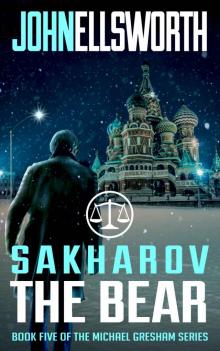 Michael Gresham (Book 5): Sakharov the Bear
Michael Gresham (Book 5): Sakharov the Bear Voices In The Walls: A Psychological Thriller (Michael Gresham Series)
Voices In The Walls: A Psychological Thriller (Michael Gresham Series)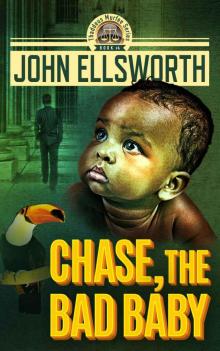 Chase, the Bad Baby: A Legal and Medical Thriller (Thaddeus Murfee Legal Thriller Series Book 4)
Chase, the Bad Baby: A Legal and Medical Thriller (Thaddeus Murfee Legal Thriller Series Book 4)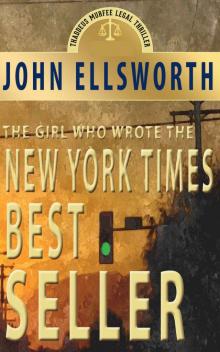 The Girl Who Wrote The New York Times Bestseller: A Novel (Thaddeus Murfee Legal Thrillers Book 8)
The Girl Who Wrote The New York Times Bestseller: A Novel (Thaddeus Murfee Legal Thrillers Book 8) The Defendants: Crime Fiction & Legal Thriller (Thaddeus Murfee Legal Thriller Series Book 1)
The Defendants: Crime Fiction & Legal Thriller (Thaddeus Murfee Legal Thriller Series Book 1) Hellfire (Sisters In Law Book 2)
Hellfire (Sisters In Law Book 2)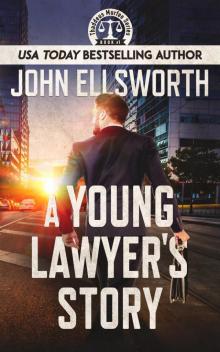 A Young Lawyer's story
A Young Lawyer's story Annie's Verdict (Michael Gresham Legal Thrillers Book 6)
Annie's Verdict (Michael Gresham Legal Thrillers Book 6)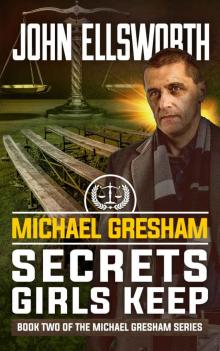 Legal Thriller: Michael Gresham: Secrets Girls Keep: A Courtroom Drama (Michael Gresham Legal Thriller Series Book 2)
Legal Thriller: Michael Gresham: Secrets Girls Keep: A Courtroom Drama (Michael Gresham Legal Thriller Series Book 2)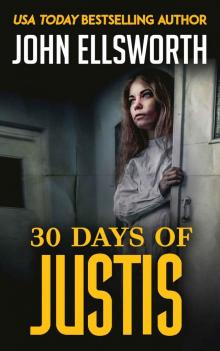 30 Days of Justis
30 Days of Justis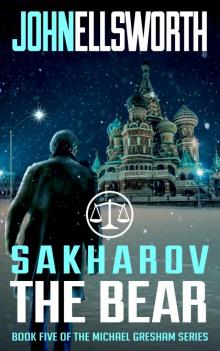 Sakharov the Bear (Michael Gresham Legal Thrillers Book 5)
Sakharov the Bear (Michael Gresham Legal Thrillers Book 5)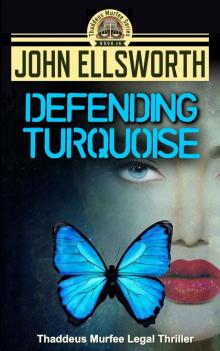 Defending Turquoise (Thaddeus Murfee Legal Thriller Series Book 5)
Defending Turquoise (Thaddeus Murfee Legal Thriller Series Book 5)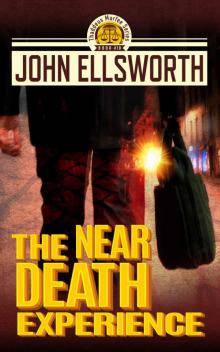 The Near Death Experience (Thaddeus Murfee Legal Thriller Series Book 10)
The Near Death Experience (Thaddeus Murfee Legal Thriller Series Book 10)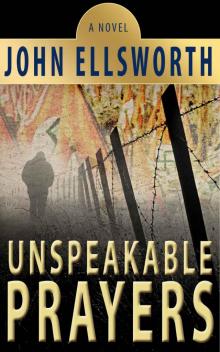 Unspeakable Prayers: WW II to Present Day (Thaddeus Murfee Series of Legal Thrillers)
Unspeakable Prayers: WW II to Present Day (Thaddeus Murfee Series of Legal Thrillers)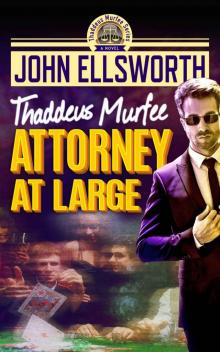 Attorney at Large (Thaddeus Murfee Legal Thriller Series Book 3)
Attorney at Large (Thaddeus Murfee Legal Thriller Series Book 3)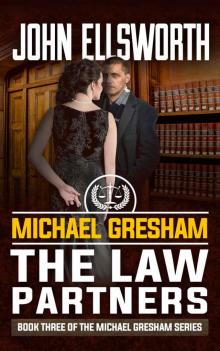 The Law Partners (Michael Gresham Legal Thriller Series Book 3)
The Law Partners (Michael Gresham Legal Thriller Series Book 3) Annie's Verdict
Annie's Verdict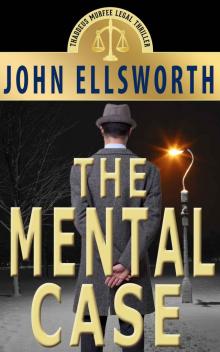 The Mental Case (Thaddeus Murfee Legal Thriller Series Book 6)
The Mental Case (Thaddeus Murfee Legal Thriller Series Book 6)